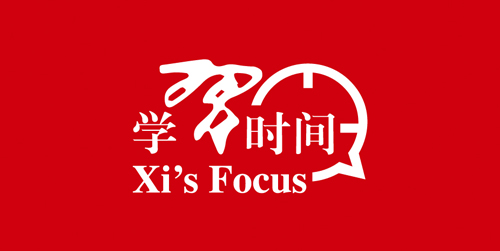Covering the Association of Southeast Asian Nations (ASEAN), China, Japan, the Republic of Korea (ROK), Australia and New Zealand, the RCEP intends to safeguard the open and multilateral trading system, and play a prominent role in deepening regional economic integration and stabilizing the global economy. The agreement was signed on November 15, 2020.
As a major member of the RCEP, China was the first to submit its instrument of ratification, with the 701 binding obligations ready to honor the agreement. China has also made arrangements for the fulfilling of the commitments.
The implementation of the RCEP provides a solid opportunity for China's new development paradigm to further take shape. The dual circulation development model, in which domestic and overseas markets reinforce each other, with the domestic market as the mainstay, is key to the nation's 14th Five-Year Plan (2021-25) and Long-Range Objectives Through the Year 2035. It will help foster stronger regional trade and investment partnerships with ASEAN nations, Belt and Road participating countries, as well as developing economies across the world. Under the RCEP framework, all members work under the same economic and trade regulations on tariffs, investments, rules of origin, intellectual property rights and e-commerce. This virtually bulldozes any trade barriers between China and other member states, paving the way for a circle of consumption and investment between all parties involved, thus further strengthening links between the Chinese and global markets.
In order to better meet RCEP requirements and standards, China will continue its reforms. Member states have made high-level promises on customs clearance efficiency, quarantine and technical criteria for trade facilitation. More specifically, they are set to release goods within 48 hours after arrival and six hours for express deliveries and perishable goods. Participants have all pledged to realize paperless trade, recognizing the validity of electronic signatures to further facilitate e-commerce undertakings.
The implementation of the RCEP will help reinforce the basis of China's foreign trade and investments. All other members are important trading partners of China, with ASEAN, Japan and the ROK as its first, fourth and fifth largest ones, respectively. China's trade volume with other RCEP participants accounts for one third of its total foreign trade volume. Following the implementation, 90 percent of imports and exports within the bloc should meet zero tariffs. As the rules of origin will cut the threshold for member states to enjoy each other's zero-tariff dealings, this will encourage manufacturers to use more regionally produced raw materials and in turn boost closer and more resilient regional supply chains. High-level opening-up promises will expedite investment among member states. China is equipped with a complete and highly efficient industrial system, bearing huge potential to attract foreign investment.
The RCEP enactment will greatly bolster the world's confidence in economic recovery amid the fight against the COVID-19 pandemic. On the day the agreement took effect, the immediate zero-tariff ratio between China and ASEAN, Australia and New Zealand exceeded 65 percent. In the first 11 months of 2021, China's imports and exports reached $5.48 trillion, up by 31.3 percent year on year. With zero tariffs, the jump is bound to be much higher. This will greatly offset the haunting negative impacts the pandemic has exerted on the regional economy and inject more vitality into the economy. Courtesy of highly complementary economic structures, as well as the overarching capital, technology and labor factors present within the region, the implementation of the RCEP will help promote the free flow of various economic factors, as well as strengthen labor division and cooperation among member states. The RCEP is poised to become the most dynamic economic bloc in the world, ready to drag the world economy out of its current gloom.














